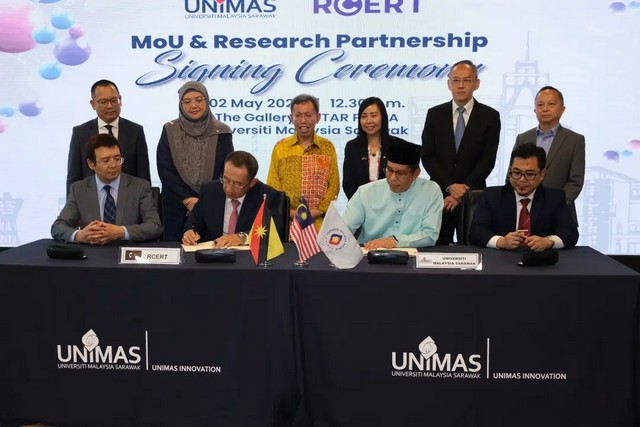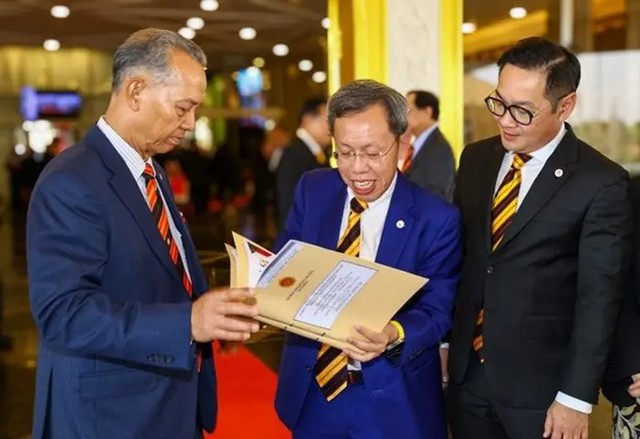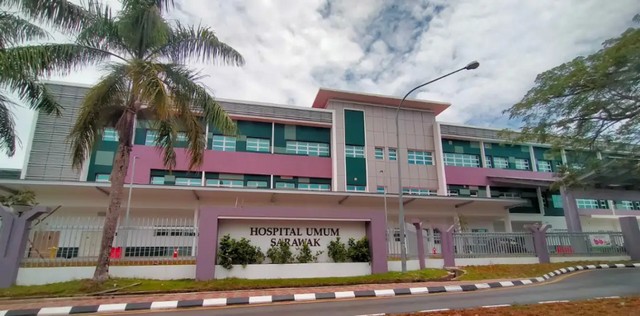As Sarawak continues to develop, significant strides are being made in its healthcare sector, driven by both governmental efforts and strategic partnerships. The state’s commitment to improving healthcare infrastructure, fostering medical innovation, and pushing for autonomy reflects a broader vision to ensure the well-being of its residents.
Sarawak General Hospital (SGH) Recognized Among Malaysia’s Best
In late April 2024, Sarawak General Hospital (SGH) achieved significant recognition, being ranked as one of Malaysia’s top 28 hospitals by Newsweek. SGH was placed at No. 22, a commendable position, especially as one of only four public hospitals to make the list. The other public hospitals included were Hospital Kuala Lumpur (4th), Putrajaya Public Hospital (26th), and University Malaya Medical Centre (16th). Notably, SGH was the only hospital on Borneo island to be recognised.
Sarawak Deputy Premier Datuk Amar Dr. Sim Kui Hian lauded this achievement, emphasising the dedication of SGH’s staff.
“This unexpected achievement, though not surprising for those who I had the privilege to work with, is only possible because the 5,000 medical and paramedical staff, with another 500 private support staff, have been doing their jobs beyond the call of duty with infective enthusiasm, passion, dedication, sacrifice, professionalism, and integrity.”
He urged public support for SGH to continue its excellent service despite financial limitations.
Dr. Sim also stressed the need for increased federal spending on healthcare, advocating for expenditure to reach 5% of the nation’s GDP as outlined in the Health White Paper. He reiterated the Sarawak government’s commitment to pursuing health autonomy under the Malaysia Agreement 1963 (MA63), a move that would allow the state to manage and expedite healthcare projects more effectively.
Partnership in Healthcare Innovation
In early May 2024, a groundbreaking collaboration was formed between Universiti Malaysia Sarawak (Unimas) and RCERT Sdn Bhd, focusing on stem cell technologies and cellular therapy. This partnership, witnessed by Dr. Sim, aims to foster advanced medical research and innovation. Key aspects include joint training, research endeavours, and the establishment of a state-of-the-art cellular therapy laboratory at Unimas.
The new laboratory will concentrate on chimeric antigen receptor (CAR)-T cell therapy, a promising treatment in cancer therapy. Unimas Vice-Chancellor Prof. Dr. Ahmad Hata Rasit highlighted the collaboration’s potential to advance medical science and improve healthcare outcomes in the region, offering personalised treatments to patients.

Dr. Sim emphasised the importance of continued investment in research and infrastructure to harness the full potential of these transformative treatments.
“Through the establishment of a state-of-the-art cellular therapy laboratory here at Unimas, we are able to transform the way we approach the treatment of various diseases,” he stated.
Legislative Reforms for Public Health
During the Sarawak Legislative Assembly on May 7, 2024, Dr. Sim proposed amendments to the Protection of Public Health Ordinance 1999.
These amendments aim to update and strengthen the ordinance to meet current needs and expectations. Key changes include enhanced penalties and enforcement measures, provisions for temporary food premises licenses, and regulations for maintaining funeral parlours and cemeteries.

The Bill was unanimously passed, reflecting a commitment to improving public health standards in Sarawak.
Ongoing Efforts for Health Autonomy
Dr. Sim has reiterated calls for health autonomy following an incident at Bintulu Hospital where a patient experienced a long waiting time. He argued that healthcare autonomy would enable Sarawak to manage hospital infrastructure and resources more effectively. Discussions with the federal government are ongoing, with a historic technical meeting held in January 2024 to advance Sarawak’s request for health autonomy.
Investments in Healthcare Infrastructure
Significant investments are being made to upgrade and repair health facilities in Sarawak.
As of May 2024, the federal Health Ministry has allocated RM42.74 million for these efforts in 2024. This funding will address the needs of 206 out of 271 clinics currently in poor condition.
The state government is also pioneering initial financing for federal projects within Sarawak to expedite implementation, with the federal government reimbursing the costs later. Notable projects include the construction of a new block at Miri Hospital, nearing completion of the new Lawas Hospital, and upgrades to several rural clinics.
Future Prospects
The Sarawak government, under Premier Datuk Patinggi Tan Sri Abang Johari Tun Openg, continues to push for autonomy in key areas, including health and education, under MA63. These efforts, coupled with strategic investments and partnerships, promise to enhance healthcare delivery and infrastructure, ultimately fostering a healthier and more prosperous future for Sarawak.
By focusing on these initiatives, Sarawak aims to overcome its unique healthcare challenges and set a benchmark for excellence in medical services and innovation across the region.
References:
“Health Ministry allocates RM42.7mil for repairs, upgrading of health clinics in Sarawak”
“RM42.74 million for repair, upgrading of health clinics in Sarawak this year”
“Sarawak Health Dept says 206 state clinics rundown, in need of speedier repairs”
“2-hour wait shows S’wak needs health autonomy, says deputy premier”
“Dr Sim: First technical meeting on S’wak health autonomy ‘historical’, shows commitment to MA63”
“Unimas, RCERT ink MoU to advance healthcare innovation”
“Protection of Public Health Ordinance update is timely, says Sarawak deputy premier”
“Newsweek selects SGH as among Malaysia’s top 28 hospitals”
“Dr Sim’s Heartiest Congratulations to Sarawak General Hospital”“Petra Jaya Hospital at 71.24 pct completion, says Dr Sim”






